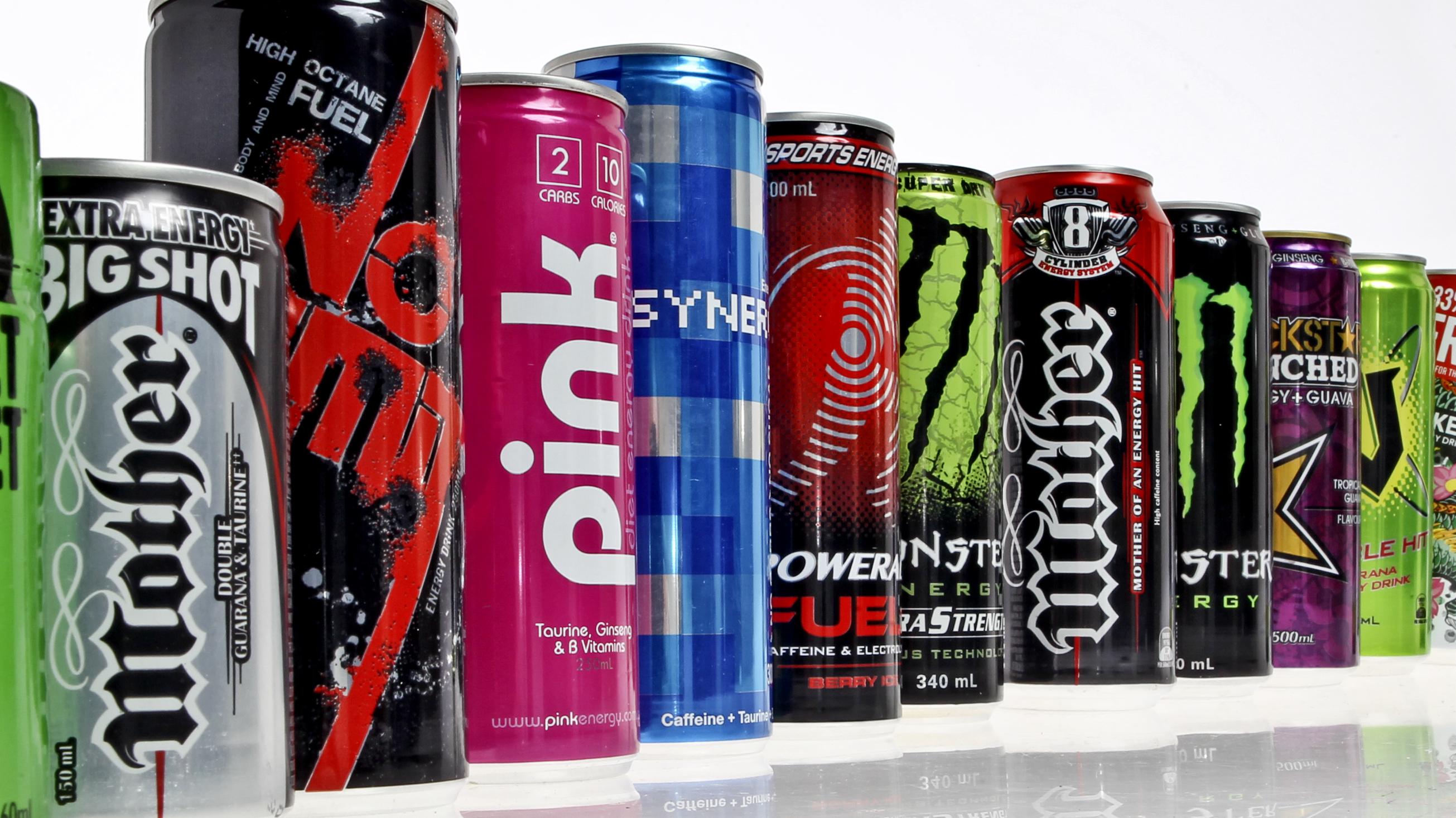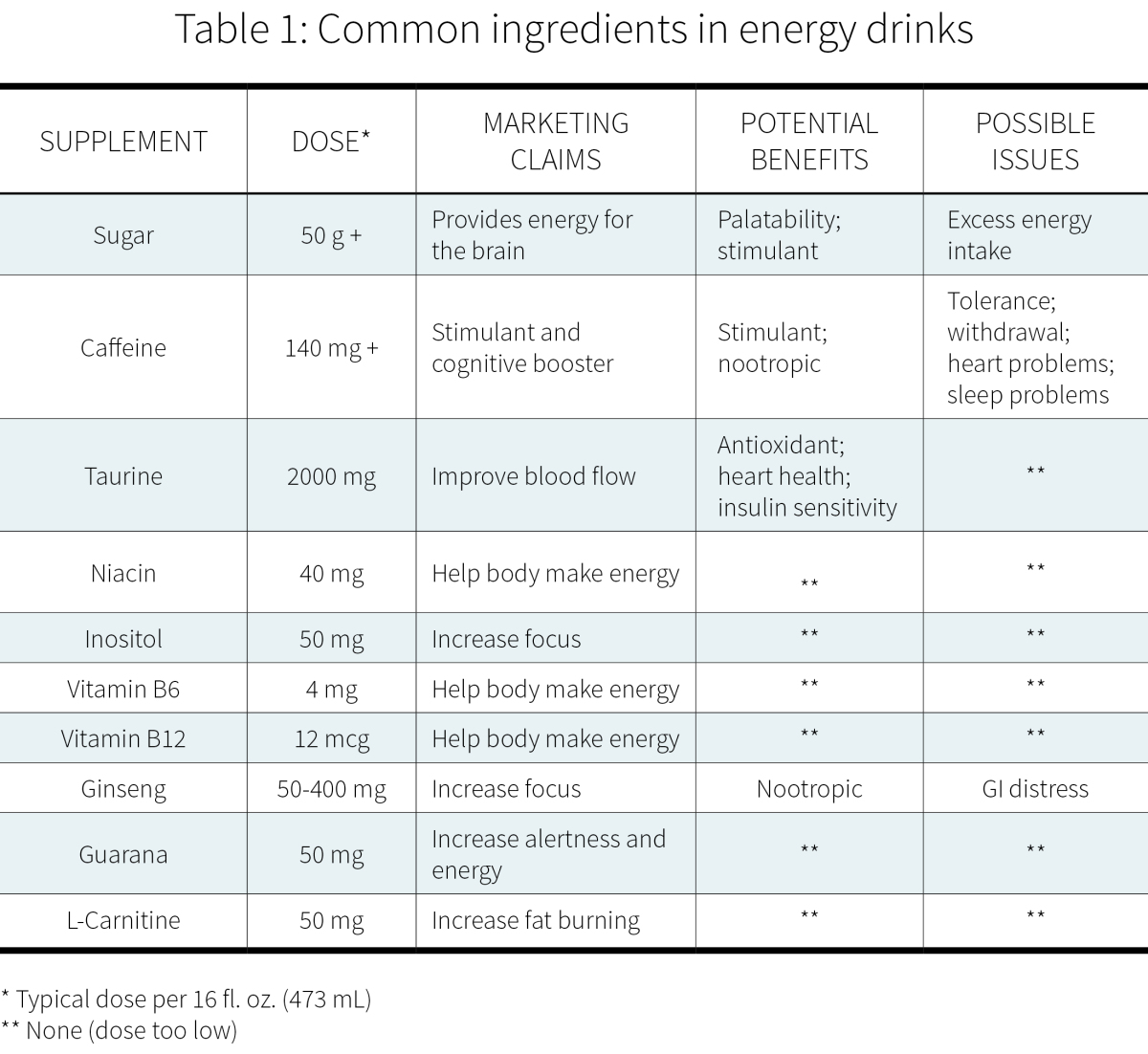We’re going to be looking at the idea that energy drinks are harmful to your health. So we found that energy drinks like Monster and Red Bull have actually become really popular in fitness circles and it’s because of the idea that you can get some sort of energy boost without any kind of caloric cost.
According to a 2007 market research reports, the energy drink market was valued at 12 billion dollars in the United States alone. It’s projected to double by 2025. However, many people aren’t sure of the health effects of these things so let’s take a closer look at what the science has to say.
Where did this idea come from?

We would say it has at least something to do with the fact that they tend to have really long ingredients lists. Sometimes with names that are kind of difficult to pronounce and we think that a lot of people have become weary of consuming so-called chemicals. However, I think that’s a term that they don’t really mean to use I think any fundamental entry-level knowledge of chemistry will tell you that everything is made up of chemicals even water is itself. A chemical and if you were to call water say dihydrogen monoxide. Its actual chemical name people may be more wary to consume it, even though that doesn’t hold any water in terms of whether or not it’s healthy or harmful.
The main problem with this it isn’t clear exactly where that line between natural and synthetic sits. Secondly just because something occurs in nature doesn’t mean it’s good for you. For example, sharks occur all the time in nature and they will kill you if you happen to run into one. On the other hand, antibiotics are synthetic they’re man-made and they can save your life if you need them. So this concern with energy drinks is at least in part an appeal to nature fallacy which isn’t necessarily incorrect. I think that in some contexts we do have good reason to be skeptical of some man-made substances and some man-made products. However, that isn’t a good enough basis on its own to the judge’s health value.
What does the science say?
The ingredients won’t look exactly the same between any two energy drink products but we think examine.com did a really good job of breaking down the science between the ten most commonly used ingredients in energy drinks. Notice that this list can look more or less scary depending on if they use the chemical name or not.
“All things are poison, and nothing is without poison, the dosage alone makes it so a thing is not a poison.

We have a list of three vitamins- Insitol vitamin, Niacin, b6, and b12. They’re all water-soluble vitamins. So the likelihood for overdose and negative health effects is basically nil. Especially at the typical dose but they also don’t do what they’re clean to do which is improve energy because unlike actual food vitamins don’t increase energy acutely and they don’t have any caloric value like actual food and them’re not stimulants like say caffeine. The same thing goes for guarana which is just a natural form of caffeine but here the dose is almost always too low to do much of anything good or bad.
L-carnitine is also over height. It’s although it’s actually very effective and improving sperm quality the dose would have to be about 60 times higher 19 doesn’t increase fat burning except for in cases of carnitine deficiency which is actually extremely rare in adults without metabolic disorders.
Taurine which does have some potential benefits including antioxidant and cardioprotective effects and improved insulin sensitivity. Now the 2008 toxicology report on the upper limit for daily supplemental Taurine consumption across an entire lifetime was 3 grams. So with one gram being in a can of monster. This morning may give you some pause when exceeding or nearing say three monsters a day and consistently.
Ginseng, It’s supposed to increase focus. One 2010 study, showed positive cognitive effects at 400-milligram dose but actually a slowing in arithmetic with 200 milligrams compared to placebo. As you’ll probably want at least more than 200 milligrams if taking ginseng for focus and in terms of negative effects examine sites of potential for GI distress and granted while a 2011 systematic review looking at 57 clinical trials concluded that ginseng generally has a good safety profile and the incidence of adverse effects seems to below 16 of the 57 trials did report side-effects but they were mostly related to the GI tract. So things like diarrhea and cramps.
The long story in short of, it is that you’d have to consume something like 32 cans of diet soda just to hit the adequate daily intake for a skate we have to drink something like 6 cans of diet soda to hit that adequate daily intake for sucralose. Just keep in mind that the adequate daily intake is a very very conservative estimate of how much you have to drink every day for a lifetime to see no adverse health effects.
Last year, Health Canada filed a safety alert that healthy adults consume no more than 400 milligrams of caffeine per day but she could easily exceed with a monster and a pre-workout alone. In a 2017 review from the safety of caffeine mirror this recommendation.
They also noted that between 2005 in 2011 there were over 79,000 emergency room visits attributable to overconsumption of energy products containing high levels of caffeine in patients aged 12 years and old usually this was due to tachyarrhythmia, really fast heart rate from a high dose of caffeine. In many of these cases involved alcohol consumption as well so you definitely want to be careful when combining these substances stranded.
The actual lethal dose of caffeine as about 10 grams so you’d have to drink something like 50 cans of energy drink just to reach that. However, in powder form, it’s quite a bit more dangerous and you could easily reach a lethal dose with just like two teaspoons of pure caffeine powder.
Result
Whether or not energy drinks are harmful will depend on:
- The person consuming it- Age, body weight, and overall health status.
- How much they are consuming.
They want to really heat Health Canada’s advice and pay attention to your total daily caffeine intake you might want to try to keep that below 400 milligrams per day.
IN THIS POST -:
References:
https://examine.com/nutrition/are-energy-drinks-bad-for-you/
https://www.grandviewresearch.com/industry-analysis/energy-drinks-market
https://www.ncbi.nlm.nih.gov/pubmed/20737519
https://www.ncbi.nlm.nih.gov/pubmed/21704950
http://healthycanadians.gc.ca/recall-alert-rappel-avis/hc-sc/2017/63362a-eng.php
http://webprod.hc-sc.gc.ca/nhpid-bdipsn/ingredReq.do?id=1528&lang=eng
https://sciencebasedmedicine.org/the-clean-eating-delusion/
https://sciencebasedmedicine.org/energy-drinks/

